Camping is often a bonding experience for families, and a way to enjoy nature without the distractions of modern life. Camping trips can be done on a budget and you don’t need a lot of specialized equipment. One activity that most family has tried is building a shelter out of sticks and bushes, scavenger hunt, stripping down to our swimsuits, and jumping into the nearest river or creek.
Another option is hiking up a mountain or hill and having an al fresco picnic. If you get tired after all this activity, you can relax by the campfire telling stories, songs, jokes and just hanging out together. However, it can also be a bit challenging if you're not prepared. Trying to figure out what you should bring along with you shouldn’t add to the stress of going camping for the first time. You want to make your trip fun and memorable, not frustrating.
Ready to set up the perfect campsite? Koala Outdoor has you covered. Learn how to choose the right tent, cook delicious meals, and more with these camping hacks.
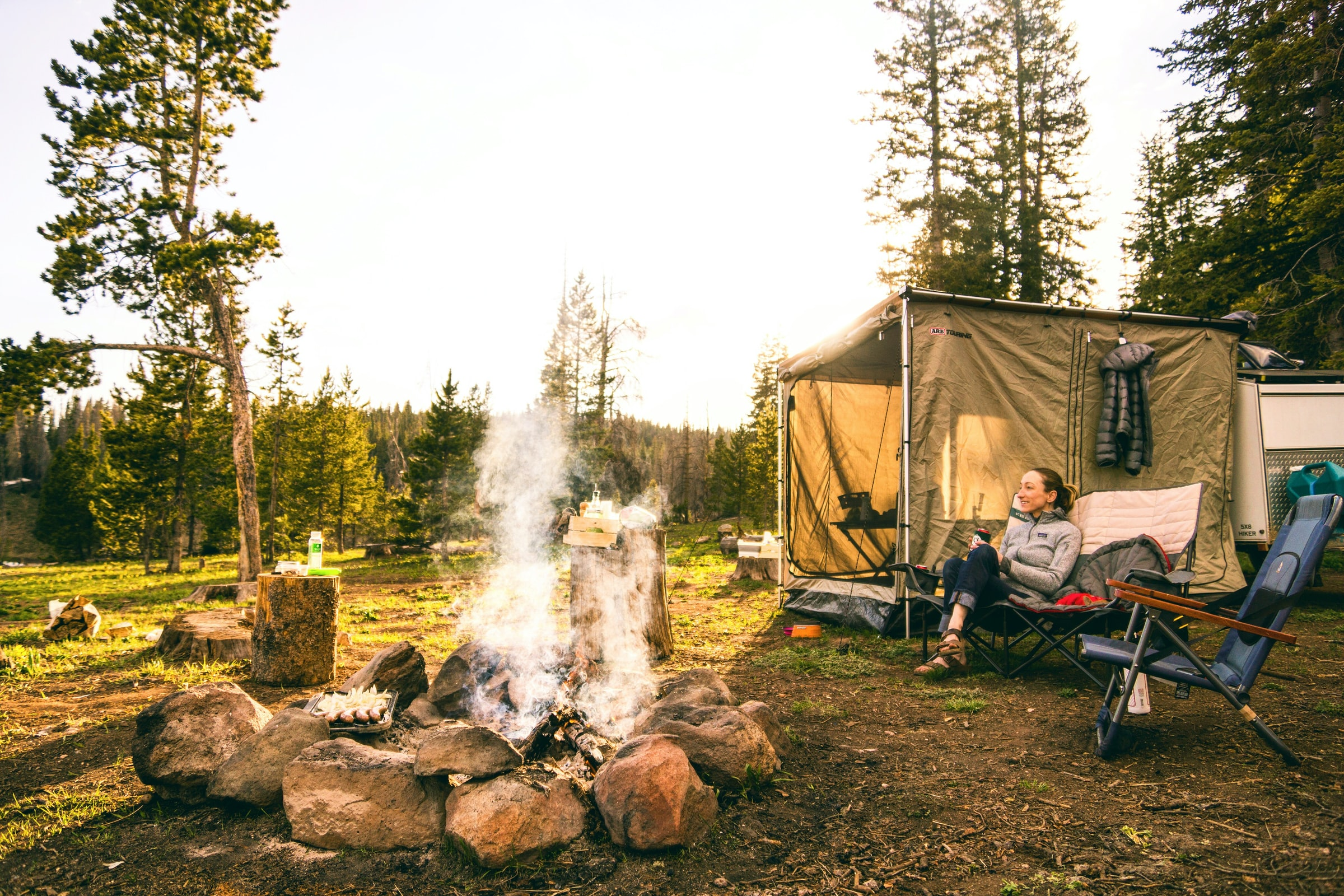 1. Choose a good campsite
1. Choose a good campsite
The first step is to choose a good campsite. Chances are, you’ll want to sit down when you reach your campsite. After all, you’ve just spent hours hiking with a backpack loaded with your gear. You’re probably hungry, sweaty, and looking forward to removing your shoes and resting on your tent.
This is important, as the site you select will determine how much you enjoy your trip. Make sure to find a spot that is secluded and peaceful, with plenty of room for your tent or RV. If possible, try to find a location that offers a nice view or close proximity to nature. It's also important to make sure the campground has all the amenities you need, such as bathrooms, showers, and a fire pit.
It is always a good idea to look for a site that has these features:
Plan your itinerary in advance
You should already have an itinerary planned ahead of time. You should know how much distance you’ll cover in a day, and where you’ll be camping at the end of it. You should also know what possible campsites are on the trail, using topographical maps if necessary. However, the best way to determine the ideal campsite is to talk to local guides or shepherds in the mountains. They can help you choose a good campsite and avoid those occupied by other trekking groups.
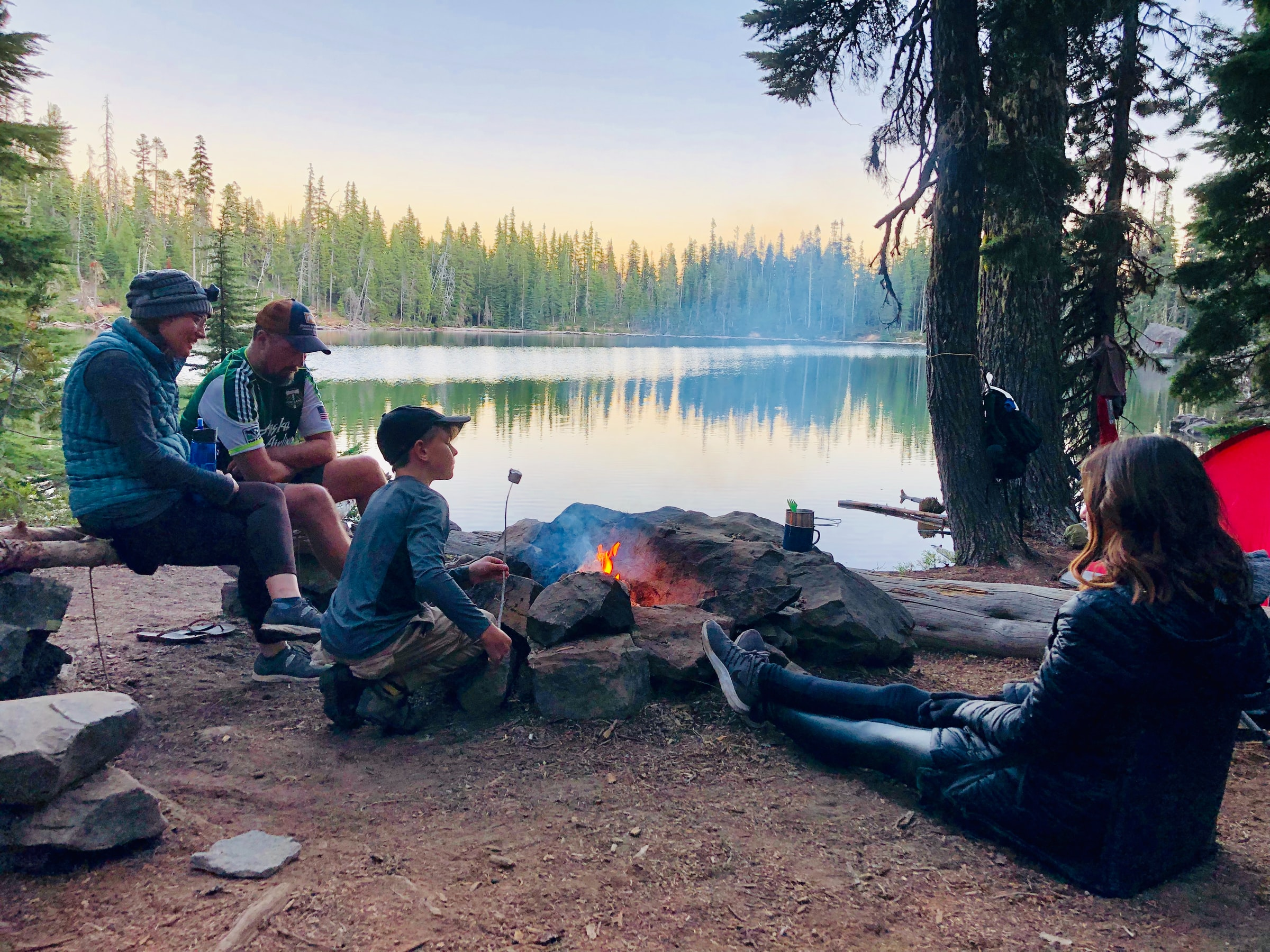 Camp Near to Water Source
Camp Near to Water Source
When you choose a campsite, remember to camp near a running water source, such as a stream. It’s better to camp next to running water, because stagnant sources may be polluted with decaying animal carcasses, and mosquitos breed easily in stagnant water. Camping near a running stream will provide you with clean water and make it easier for you to keep your drinking water free of bacteria.
You need water to:
- Drink
- Cook
- Wash utensils
- Carry out your personal business
Finding your spot
To ensure a good night's sleep, find a level spot and position your sleeping pad and sleeping bag in the best way possible. Ensure there are no rocks or roots underneath you that could cause discomfort during the night. Maintain a two-foot space between you and your tentmate so that each person has room to roll around as desired.
Proximity to nature
Another thing to consider when choosing a campground is its proximity to nature. If you're looking for a peaceful, secluded getaway, be sure to choose a campground that is surrounded by trees and wildlife. Conversely, if you're looking for more of an adventure, choose a campground that is located near a river or hiking trails.
Camping Layout
If you're camping with a small party and a single tent, you can simply find a clear spot of land to pitch your shelter. But if you're out hiking with a larger group and lots of gear, you may need to look for a larger area in which to set up camp. Save space for tents, cooking areas, and much space to relax are all important factors when it comes to choosing the right campsite.
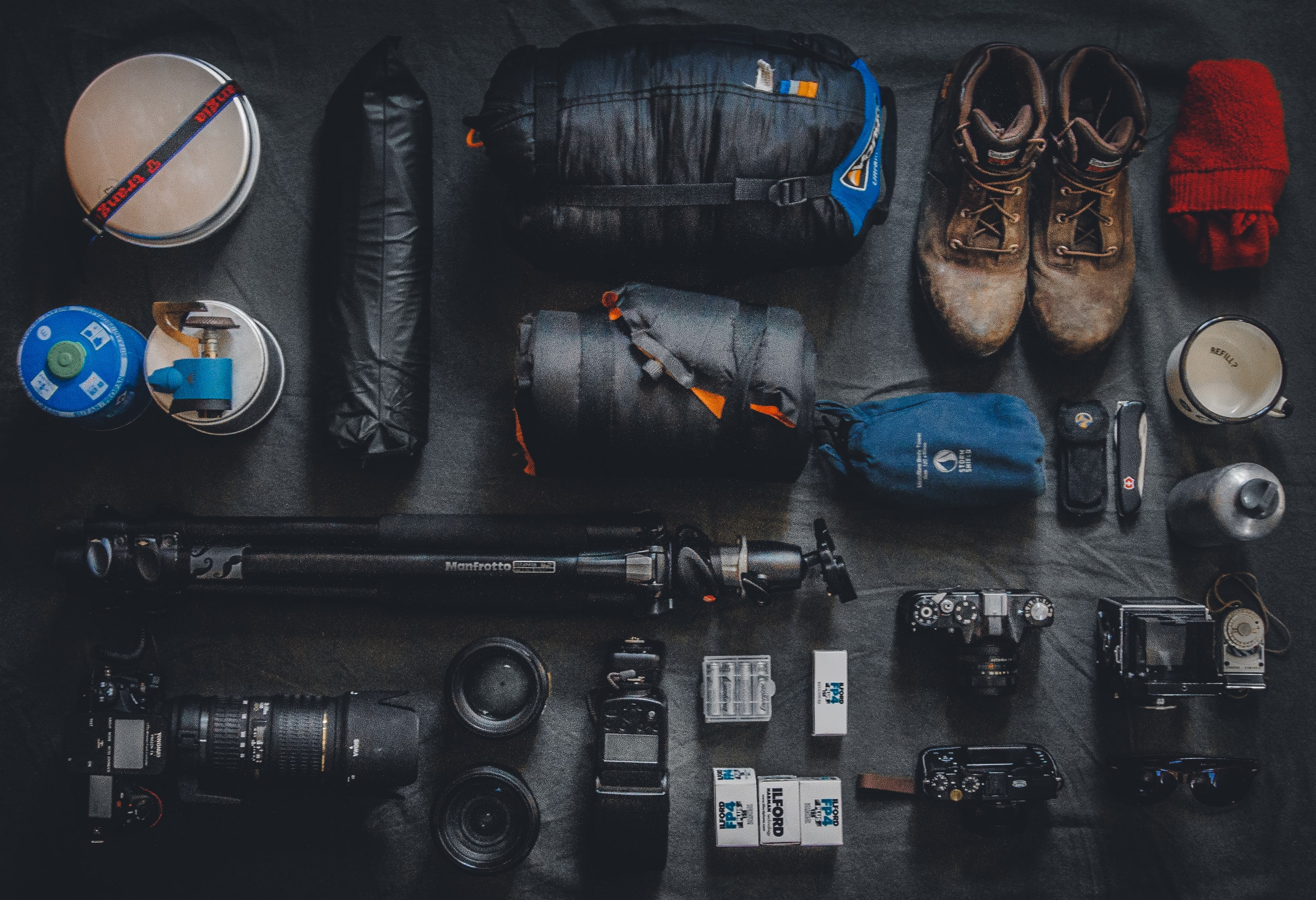 2. Packing the right camping gear
2. Packing the right camping gear
The second step is to pack the right camping gear. This includes items like a tent, sleeping bags, pads, cooking supplies, food, water, and a first-aid kit. Be sure to pack everything you need and know how to use it properly. You may also want to consider bringing along some extras, like a lantern or binoculars.
If you're hiking in a place that might be subject to bad weather, pack a lightweight tarp that can be used as a shelter for cooking and a more comfortable place to hang out and be social. The tarp can also be used for shade if no trees are present or as a quick shelter in case of emergency.
There are a few things you definitely don't want to forget to pack when going camping. Before you place anything in your backpack, run down a camping checklist. Do you have the items below?
Sleeping essentials
While some may argue that sleeping outside is not for everyone, studies show that the health benefits of getting in touch with nature are many. From improved sleep quality to a lower risk of nearsightedness, being out in nature can do wonders for your overall well-being. While being out in nature can do wonders for your sleep schedule in general, having the right gear helps, too. A good night's rest means you'll be able to take on the day with energy and enthusiasm rather than fatigue and frustration.
When deciding what to pack, it's important to think about what the conditions will be like. How much rain is expected? What will the temperature be like? What kind of terrain will you be covering? All these factors come into play when choosing your gear. In general, a tent and sleeping mats are recommended since they provide a layer between you and the ground. If it's cold out, you may also want to bring extra blankets or a sleeping bag to reflect and retain that body heat.
- Tent
- Sleeping pad (foam, insulated, self-inflated)
- Sleeping bag
- Hammock
- Cots
- Pillow
- Bivy
Campsite essentials
- Packing the right camping gear is important because it can affect your ability to enjoy your outdoor experience. Whether you are headed out on a fun family enjoying the trip that includes swimming, movie-watching, or other "indoor" activities or camping in a remote, ultra-rustic area where heat and insulation are vital, choosing the right gear will definitely impact your comfort. That is why it is important to learn how to pack for camping.
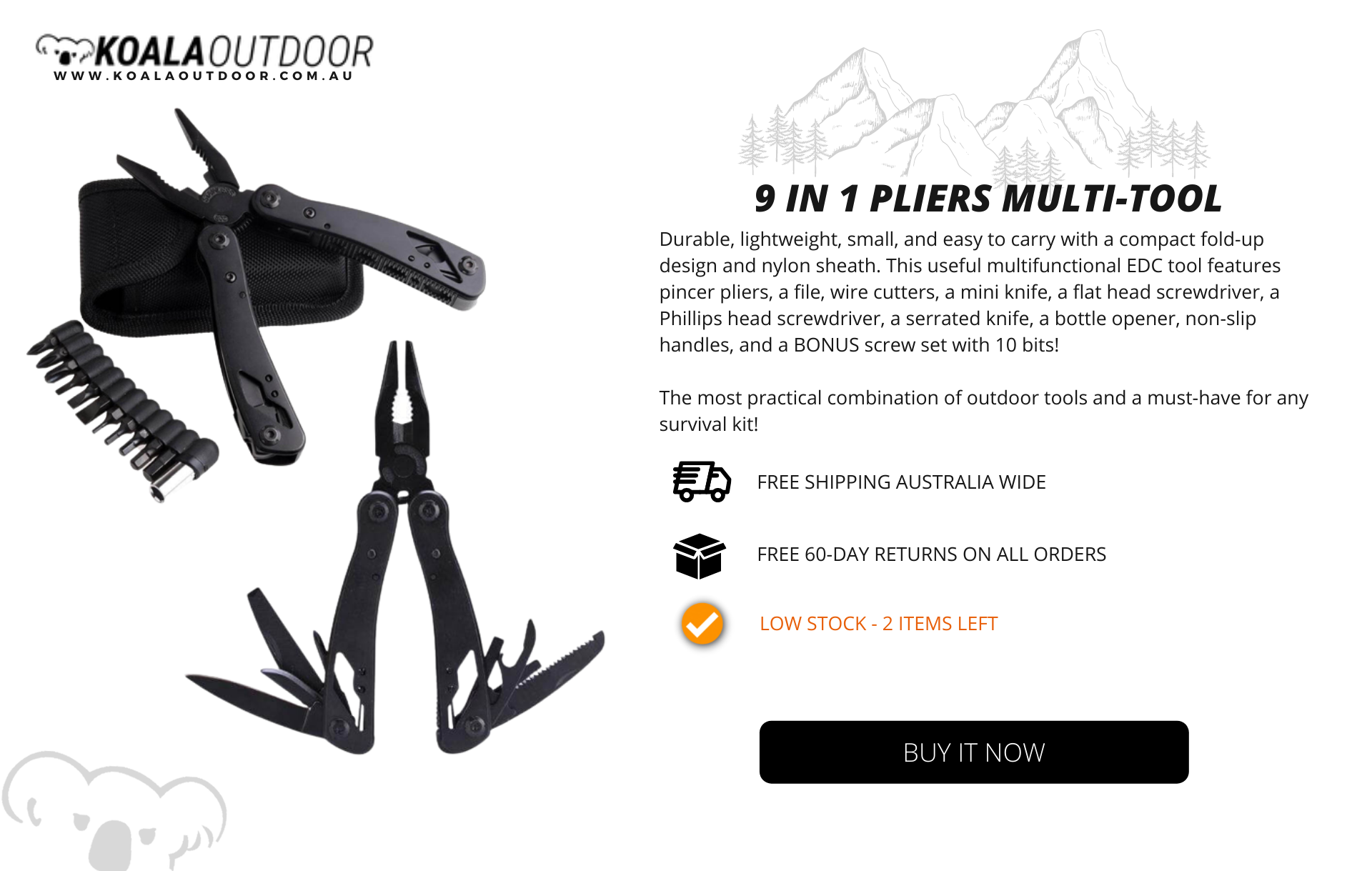 Headlamp or flashlight
Headlamp or flashlight - Lanterns
- Camping picnic table & chairs
- Firewood
- Firestarter
- Multi-tool
- Gloves
- Extra batteries
- Portable chargers
- Duct tape
- Repair kit
- A compass and a map (portable GPS)
- Two-way radios
- Trekking poles
Clothing essentials
Whether you're car camping or backpacking, there's a lot of gear involved in taking a trip into the woods. Packing your clothes can be daunting at times, especially if you're packing for the first time. So when you head out this summer to conquer Mother Nature, make sure you don't forget these essentials that will make your stay protected from the harmful sun UV rays and more enjoyable.
-
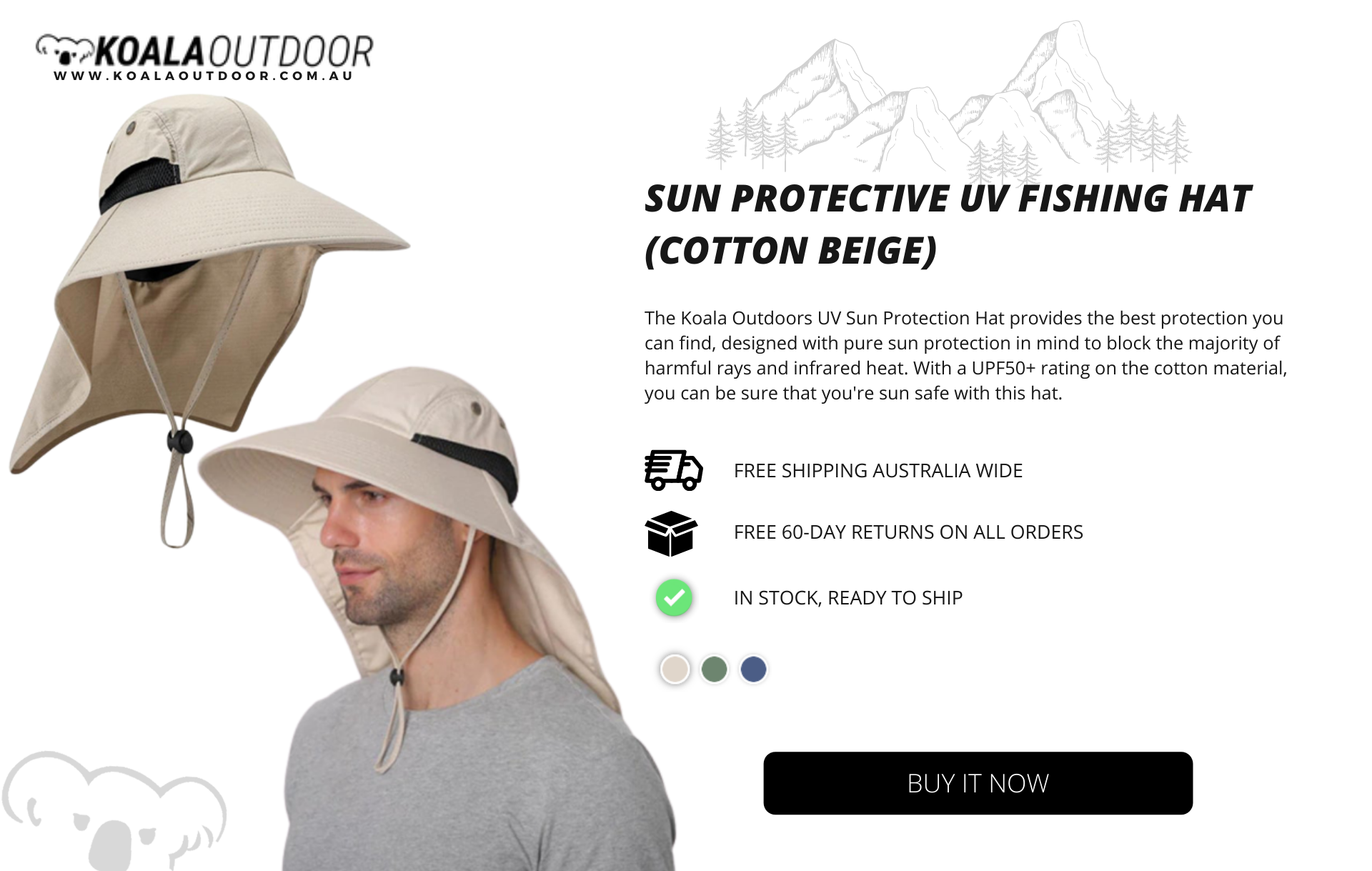 Quick-dry t-shirts
Quick-dry t-shirts - Long sleeve tops
- Waterproof jacket
- Trousers or leggings
- Hiking boots and sandals (trainers or flip flops)
- Fleece
- Sun-protection hat (Bandana, Cap, or Bonnie Hat)
- Sunglasses
- Clean pair of socks
- Pajamas
- Shorts
Cooking essentials
One of the best things about camping is cooking over an open fire. However, in order to make your meals more enjoyable, you need to have the right gear. Be sure to pack a cast-iron skillet or Dutch oven, along with utensils, plates, and cups. If you're planning on cooking hot dogs or s'mores, you'll also need a roasting stick or marshmallow skewers. Other necessities include an axe or saw for cutting wood and kindling, plus a hatchet for splitting logs into smaller pieces.
Storing food
Of course, you'll also need cooking oil and seasonings for preparing your meals. Don't forget a cooler for storing food; this will help keep your food fresh and prevent insects from getting into it. If possible, pack several coolers; one for drinks and another for food that needs refrigeration.
If you need the best camping ideas on what to bring on your next camping trip, check out this list of essential items that every seasoned camper should bring:
- Coolers
- Water bottle or thermos
- Camp stove and fuel
- Matches/lighter/firestarter
- Cook pot(s) and lid(s)
- Frying pan(s)
- Potholders and/or pot lifter
- Cooking utensils (large spoon, spatula, tongs, whisk)
- Bottle opener, can opener, corkscrew (or multi-tool)
- Sharp knife
- Cutting board
- Aluminum foil
- Plates/bowls (at least 1 per person)
- Mugs/cups (at least 1 per person)
- Eating utensils (forks and spoons)
- Small food containers or Ziplock (for leftovers)
- Trash bag
Toiletries and personal items
Food and water are very important, but toiletries like deodorant and toothpaste are so crucial that some backpackers don’t leave home without them. Here's how you can easily pack those items in your bag.
- First aid kit
- Bug spray (insect repellant)
- Sunscreen
- Camp shower
- Sunglasses
- Extra sun protection clothing
- Paper towels
- Hand sanitizer
- Toilet paper or wet wipes
- Grooming kit
It's important to pack your camping gear efficiently so you don't have to carry too much. When packing for a family camping trip, it's important to be organized. You'll want to pack items in sealed plastic bags so they don't get wet. It's also a good idea to pack lightweight items that you can easily carry with you.
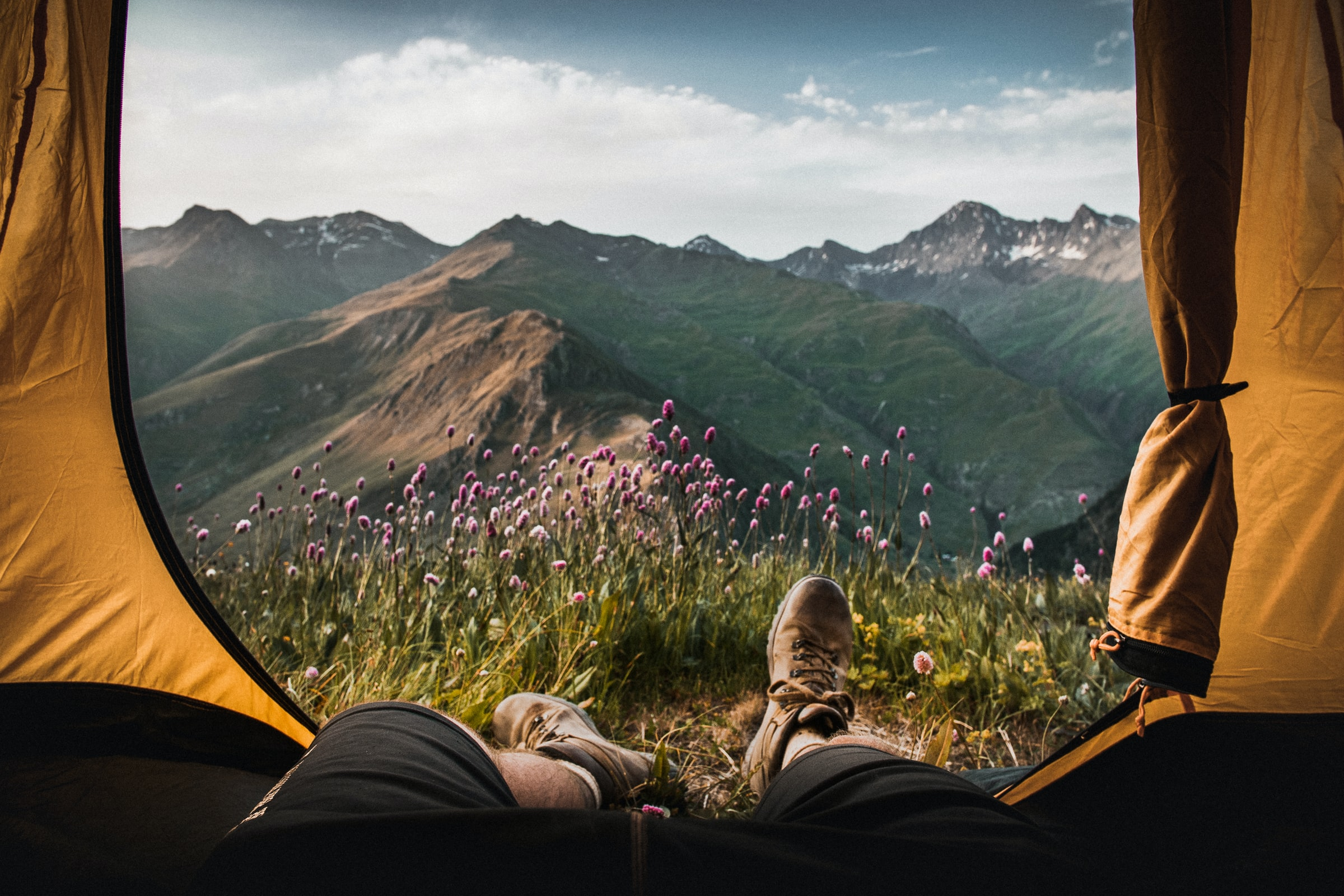 3. Gear up for a comfortable sleep
3. Gear up for a comfortable sleep
One of the most important aspects of any camping trip is getting a good night's sleep. This can be difficult when you're sleeping outdoors, but there are a few things you can do to make it more comfortable. For starters, try to choose a campsite with a soft surface, such as grass or dirt. You can also pack a camping cot or air mattress to use as a bed. Another important thing to keep in mind is that you'll likely be colder at night when camping, so dress in layers and bring a warm blanket.
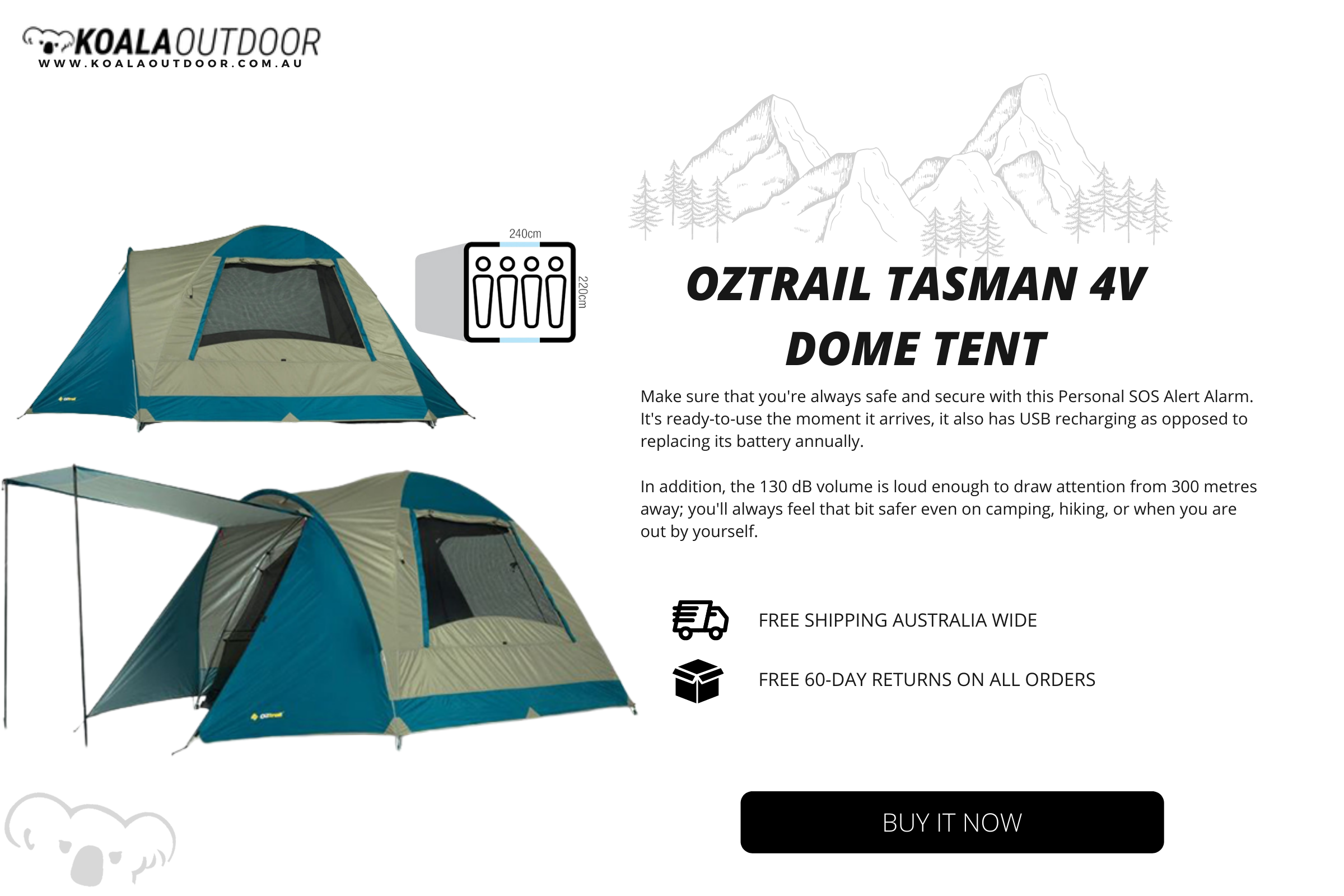 Bring a tent
Bring a tent
One of the best camping ideas is always to bring a tent. Tents provide shelter from the elements and can keep you warm and dry during bad weather. In addition, tents can offer privacy and a sense of security while you're away from home. When choosing a tent, make sure to select one that is large enough for the number of people who will be using it. In addition, be sure to check the weight and dimensions of the tent, as some can be quite heavy and difficult to carry.
Finally, before leaving for your trip, be sure to practice setting up your tent at home. This will help ensure that you can set it up quickly and easily in the dark, without any trouble.
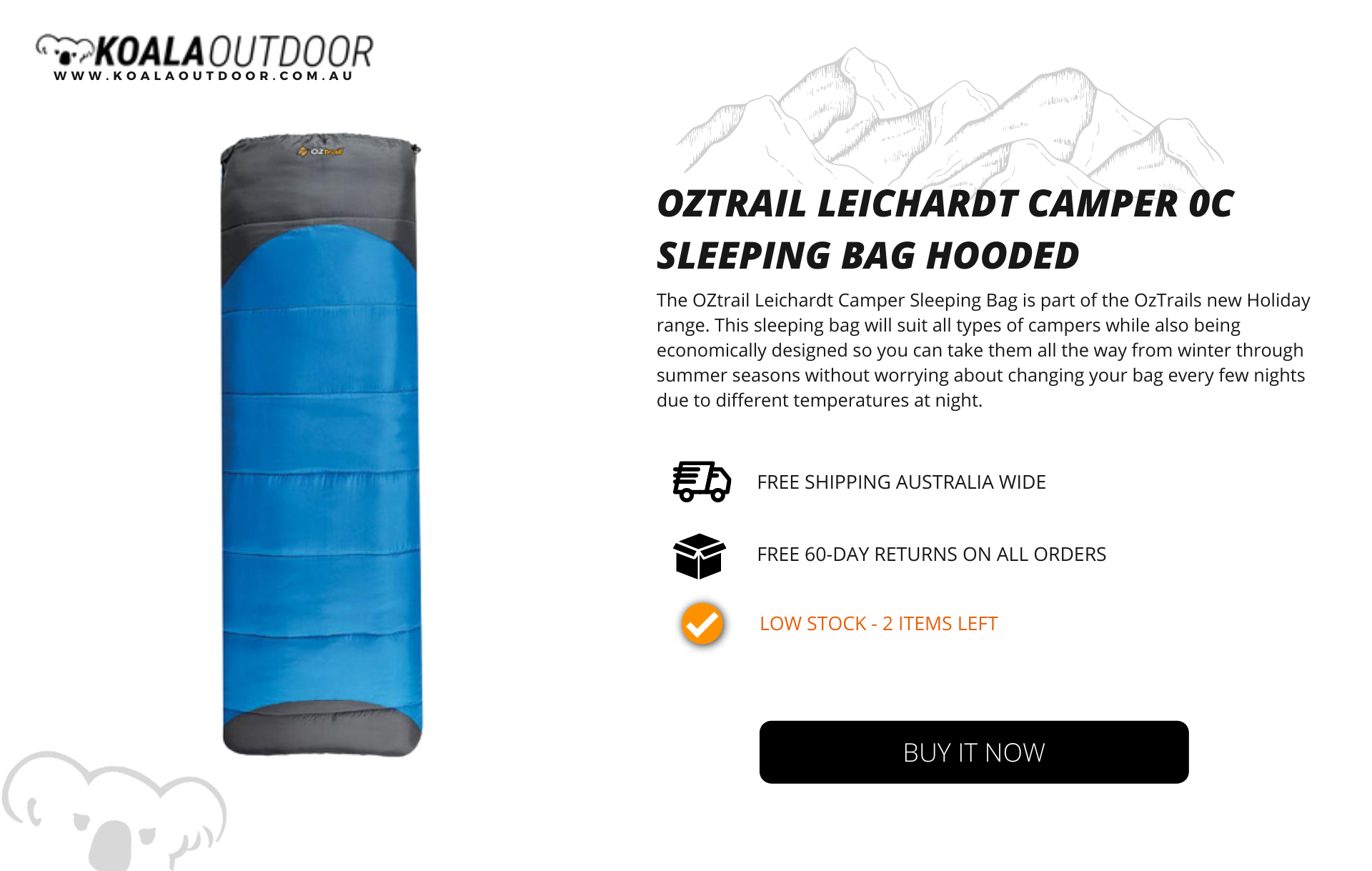 Bring a sleeping bag
Bring a sleeping bag
A sleeping bag is an essential piece of camping gear, and it's important to choose the right one. To stay warm and comfortable, you'll want to pack a tent, sleeping pad, and sleeping bag that's right for the weather and terrain you'll be camping in. There are a variety of different sleeping bags on the market, so it's important to select one that is best suited for your needs. For example, if you're camping in cold weather, you'll need a bag that is made for cold weather camping. If you're camping in a warm climate, you'll need a bag that is lightweight and has good ventilation.
Once you've chosen the right sleeping bag, it's important to pack it properly. Make sure to roll it up tightly and place it in a waterproof sack or storage container. This will help keep it dry and free of dirt and dust.
Bring a pillow
One way to make your camping trip more enjoyable is to bring a pillow. This may seem like a small thing, but it can make a big difference. A good pillow can help you get a good night's sleep, which is important when you're camping. Plus, it just makes the experience more comfortable overall.
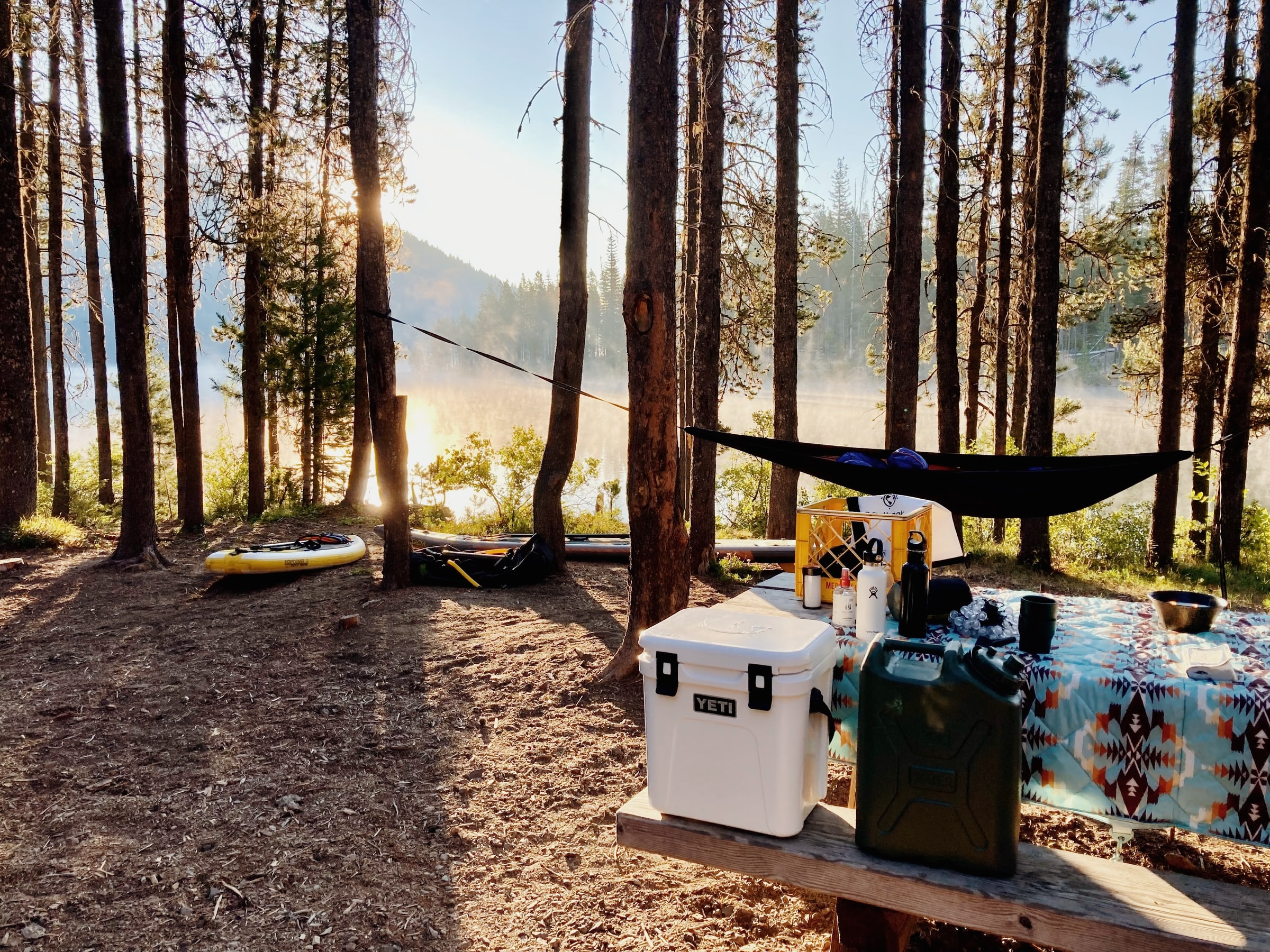 4. Bring the basics for a kitchen
4. Bring the basics for a kitchen
What about fun camping ideas that will entertain the whole family? Camping trips are a popular way to spend time in the great outdoors. It can range from inexpensive, rustic experiences in state or national parks to pricey adventures at a posh resort. One of the best things about camping is cooking over a campfire. However, in order to make your meals more enjoyable, you need to have the right gear.
Prepare food in advance
One of the most important things to remember when camping is to pack enough camping food. It's important to prepare your food in advance so you're not rushed on the trip. First, make sure you pack all of the necessary supplies, including pots, pans, utensils, plates, cups, and napkins. You'll also need a cooler to store food and drinks, as well as a way to cook food over the campfire.
Make sure to pack all the necessary ingredients and cooking supplies, and plan out your meals ahead of time. This means bringing along plenty of snacks and meals that can be prepared easily on-site. It's also a good idea to bring along some extra camping food, just in case you run out or have a longer stay than planned.
Add no-cook camping meals
One of the great things about camping is that you can cook all of your own food. However, if you're not in the mood to cook, there are plenty of no-cook camping meals that you can prepare ahead of time. Some of our favorites include sandwiches, canned biscuits, salads, trail mix, and cold cuts.
Camping meals over a campfire
There are lots of recipes that can be cooked this way, and most of them are simple and easy to prepare. If you're looking for cool camping ideas, try cooking hot dogs, hamburgers, s'mores, or foil packets filled with potatoes, carrots, and onions. These are some food-focused fun camping ideas:
- Hamburgers and hot dogs
- Grilled chicken
- Campfire S'mores
- Campfire pizzas
- Dutch oven recipes
Be sure to pack a camp stove, a cast-iron skillet, or Dutch oven, along with utensils, plates, and cups. If you're planning on cooking hot dogs or s'mores, you'll also need a roasting stick or marshmallow skewers.
Quick camping food meal
For an easy breakfast, try making scrambled eggs over-easy in the skillet or baking up some biscuits in the Dutch oven. For lunch or dinner, you can cook steaks or chicken breasts in the skillet, and potatoes wrapped in tinfoil on the coals. Or try your hand at Dutch oven chili!
No matter what you decide to cook, make sure to have plenty of food and drinks on hand. It's also a good idea to pack a few snacks, just in case.
Food safety
Another thing to consider for a great camping trip is food safety. Be sure to pack food that can withstand the heat and humidity, and that won't spoil quickly. It's also important to pack plenty of clean water for drinking and cooking.
Collect and dispose of any food waste responsibly
If you are camping and have leftover food, wrap it securely in tin foil and throw the tinfoil in the garbage bins. Don't throw the food away, because you don't want to litter or damage wildlife. Also, don't throw any non-perishables such as plates and cups away because you don't want to damage wildlife or your neighbors.
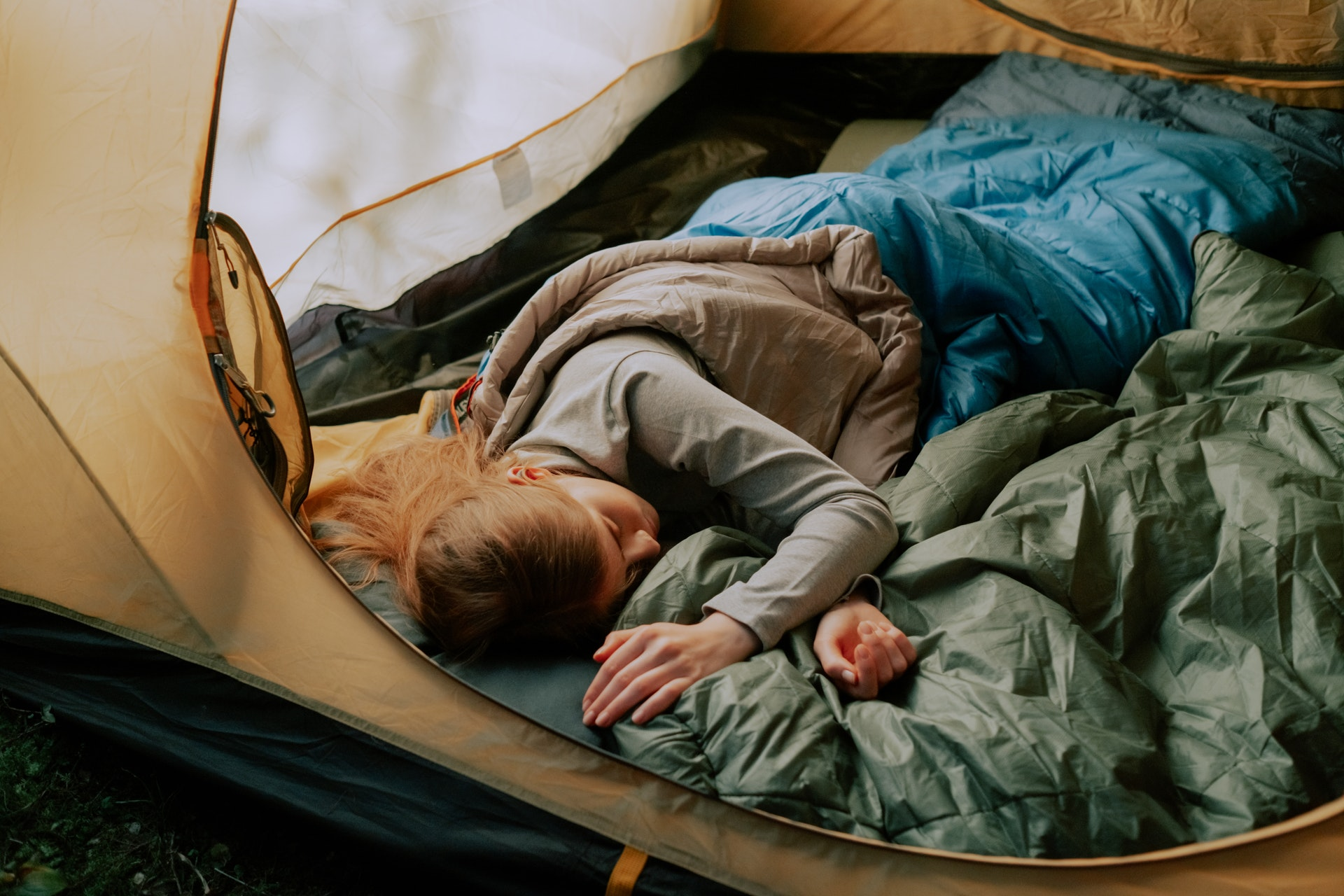 5. Stay Safe
5. Stay Safe
It's important to be aware of your surroundings and take precautions to stay safe while camping. Make sure to never leave your campsite unattended, and always store food and garbage securely. Be aware of potential dangers such as bears, snakes, and spiders, and take the necessary precautions to avoid them.
One of the most important things to remember when camping is to stay safe. This means being aware of your surroundings and taking precautions against potential dangers. Always wear sunscreen and a hat, avoid wandering off alone, and never light fires in dry areas. It's also important to be familiar with basic first-aid procedures in case of an emergency.
Always plan for bad weather
Camping can be a great way to get away from it all, but it's important to stay safe while you're there. Make sure to research your campsite ahead of time and avoid camping in areas with known hazards, such as wildlife or flash flooding. Always pack a first-aid kit and be aware of your surroundings at all times.
The key to having fun while camping is being prepared for any situation. This means having everything you will need and doing research beforehand so that you know what weather conditions you might face. By being prepared and by having the right gear, your camping trip will be an unforgettable outdoor adventure.
What not to bring when camping?
Leave all excess at home! Unessential and heavy items—such as makeup, extra clothing, hardback books, and brass instruments—will do more to bog you down than to help you. While parks usually have shops with some essentials, these are by no means convenient. One thing you don't want to bring is too much stuff. Pack lighter -- the less you have to carry, the easier your trip will be. Also, avoid bringing any valuables that could get lost or stolen.
Since you will be hauling a lot of camping equipment, it is important to keep your packing list limited to the bare necessities. You are not going to need all your styling products or appliances, nor will the kids need all their toys. Clothing should be limited to essentials and multi-functional items that can be worn in many ways like pants that can be converted into shorts.
- Perfumes or cologne
- Glassware
- High fashion jewelry
- Laptop (and other electronic gadgets like tablet, PSP, GameBoy)
- Hairdryer
The point of camping trips is to enjoy the great outdoors. You will feel truly renewed when you return home if you can forget about your laptop for a few days and focus on nature. And although it's fun to bring an instrument or a book with you, one of each is probably enough to keep you entertained.
Following campground rules
When you're camping in a campground, it's important to follow the rules. This helps keep the place clean and ensures that everyone has a good time. Some common rules to follow include not leaving behind trash, keeping noise levels down, and staying away from other happy campers' sites.
Leave no trace
In order to protect the environment and prevent other people from getting hurt, certain rules need to be followed in the backcountry and on campgrounds. The Leave No Trace policy is basically a collection of practices that everyone should adhere to for camping trips, hiking, or engaging in other outdoor activities. This includes packing out everything you pack in, being respectful of nature and other people, staying at a designated campsite, not doing anything that would cause damage to the land or harm wildlife, and more.
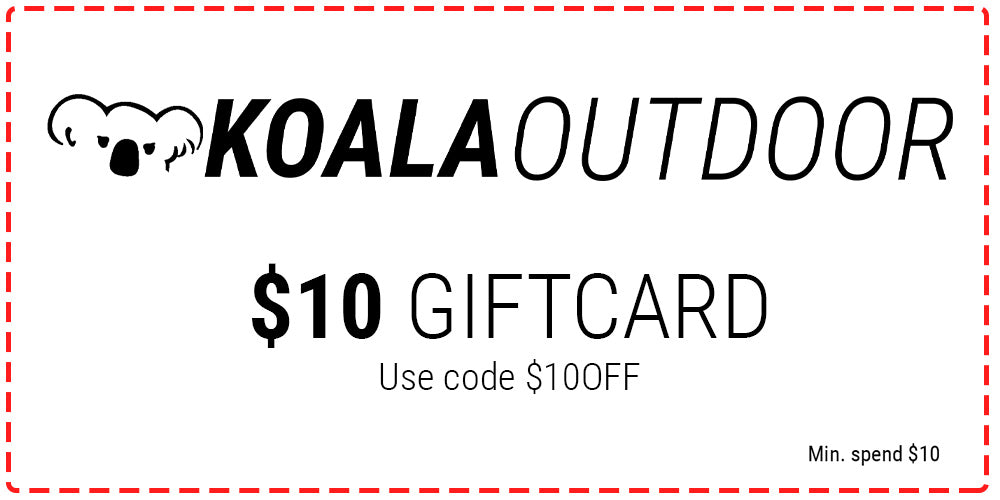 Conclusion
Conclusion
Finally, remember to have fun! Camping is a great opportunity to get outdoors and enjoy nature. With a bit of preparation and the right supplies, anyone can enjoy a safe and fun camping experience. By choosing a good campsite, packing the right gear, and being aware of your surroundings, you'll be ready to enjoy your next camping trip. These cool camping ideas include camping hacks, camping tips, and the best camping ideas that will save you time, money, and frustration
Relax and explore your surroundings while enjoying the fresh air and natural beauty that only camping can provide. Take some time to relax and explore your surroundings. There's nothing like spending a few nights under the stars!
It’s easy to forget seemingly small but actually important items. Make a comprehensive list and pull out everything on it before you start on an adventure!
If you need some help, Koala Outdoor has an interactive camping essentials checklist.


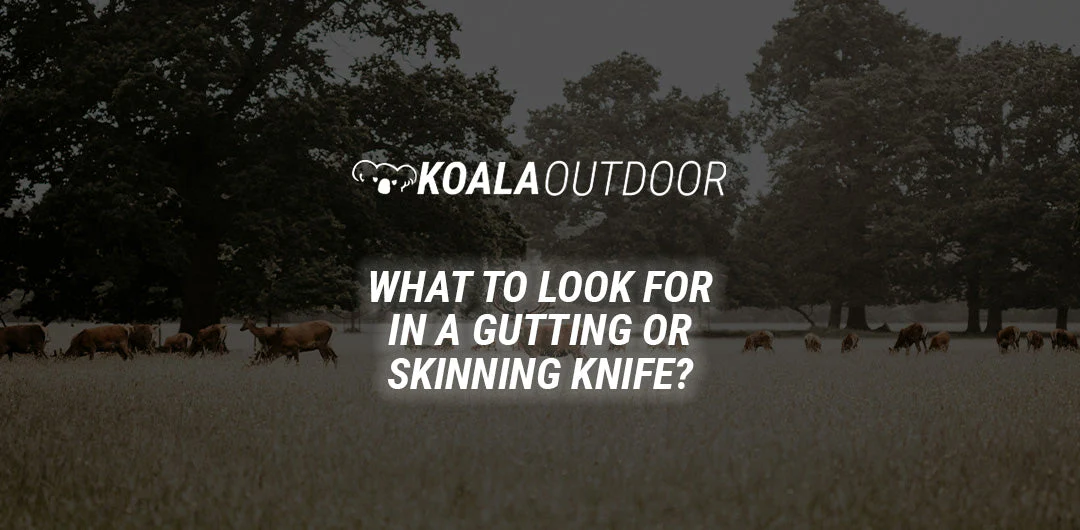


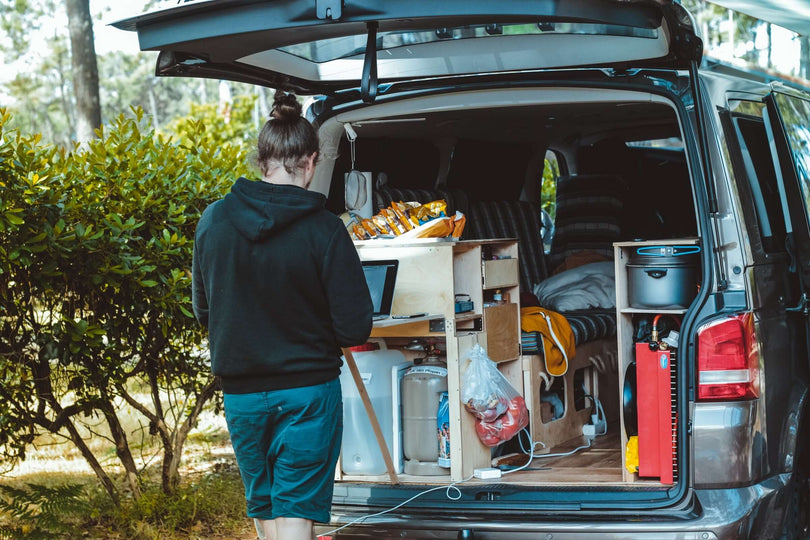
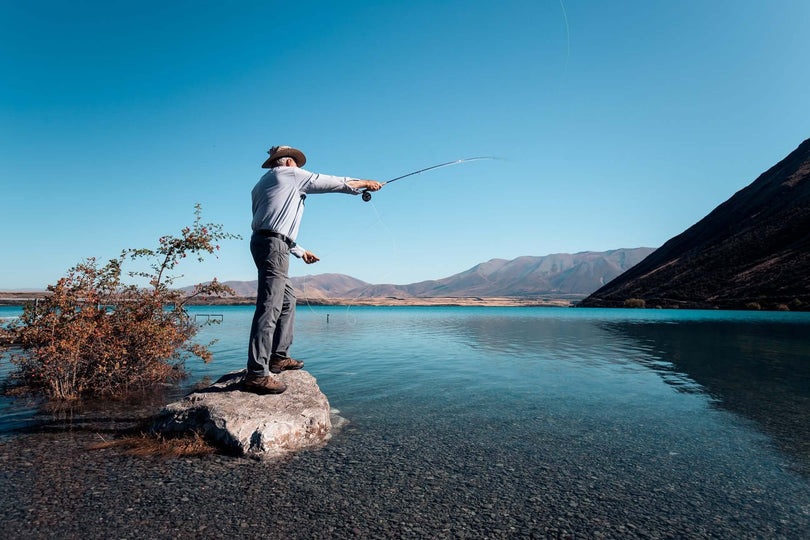
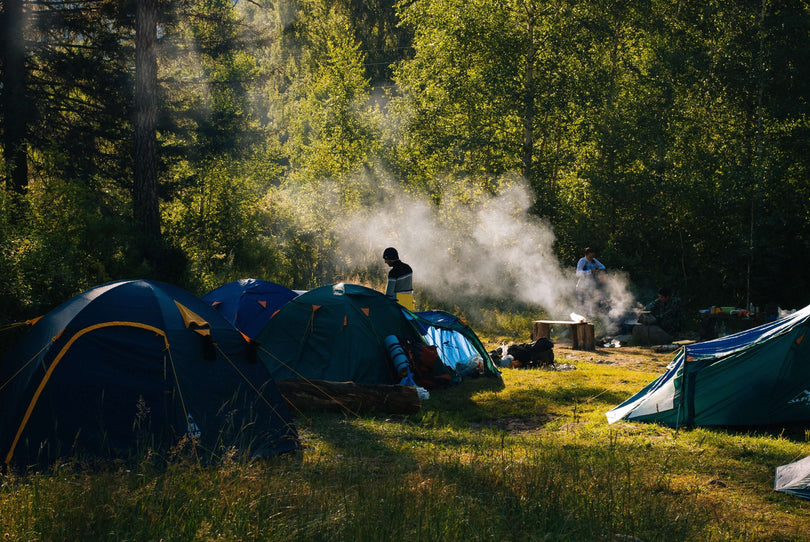
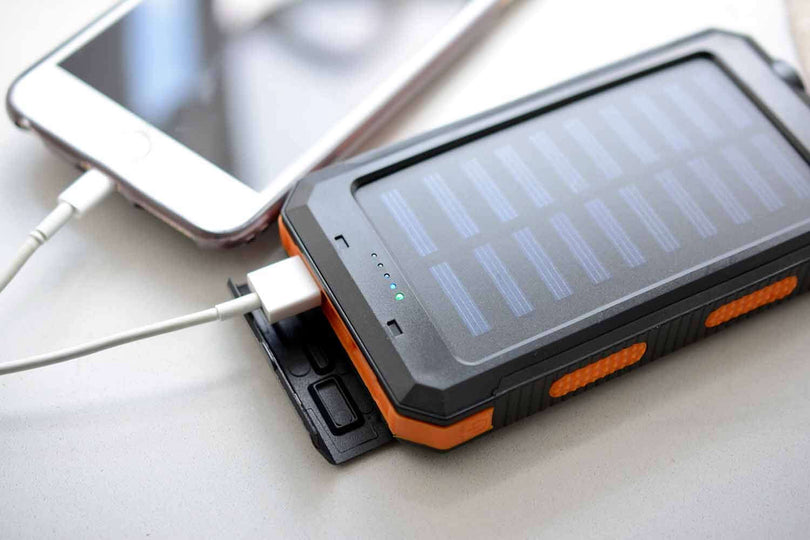
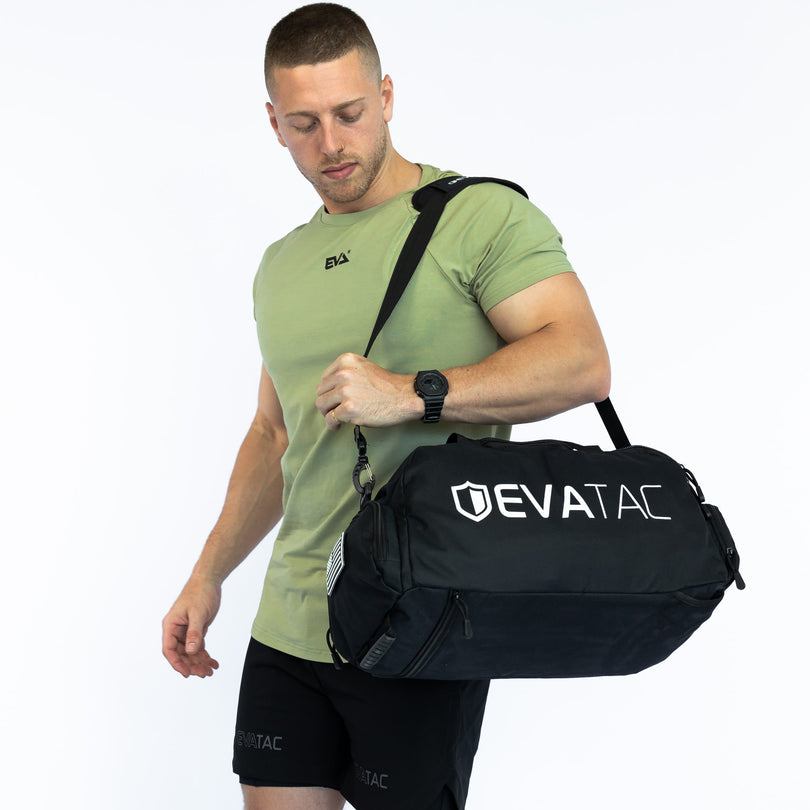
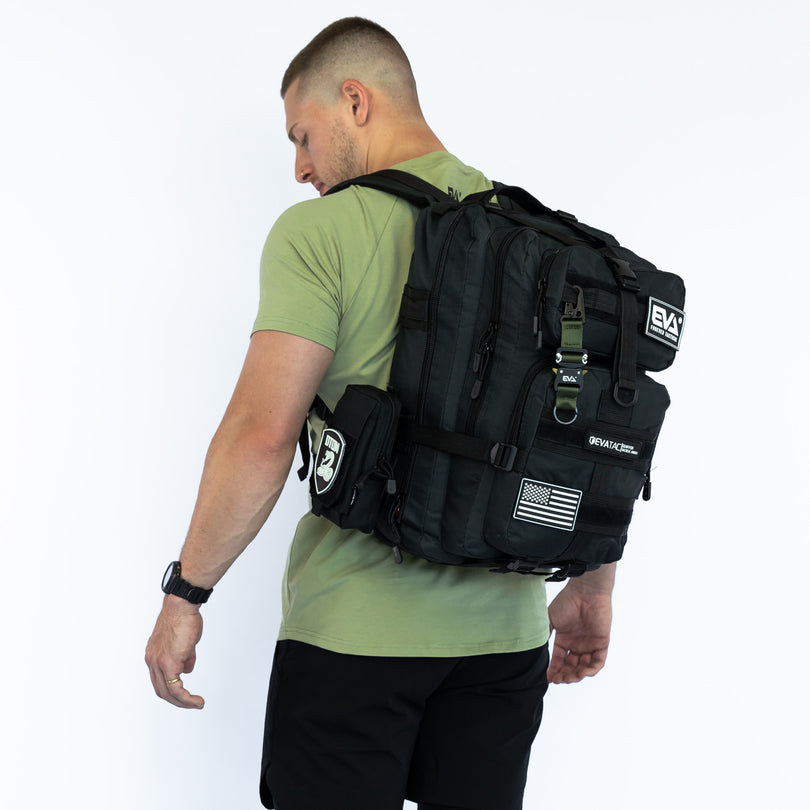
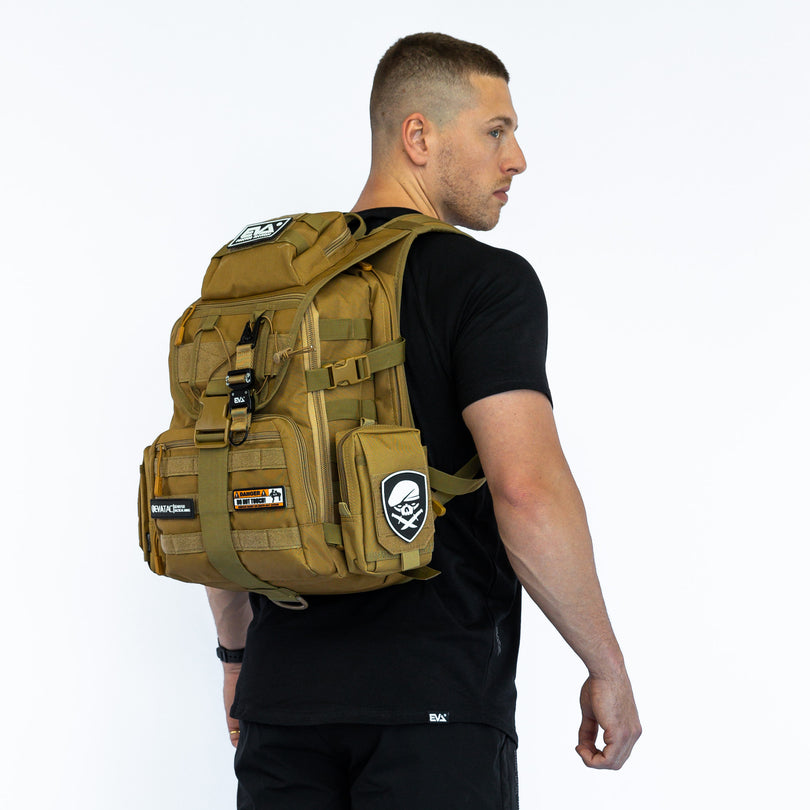
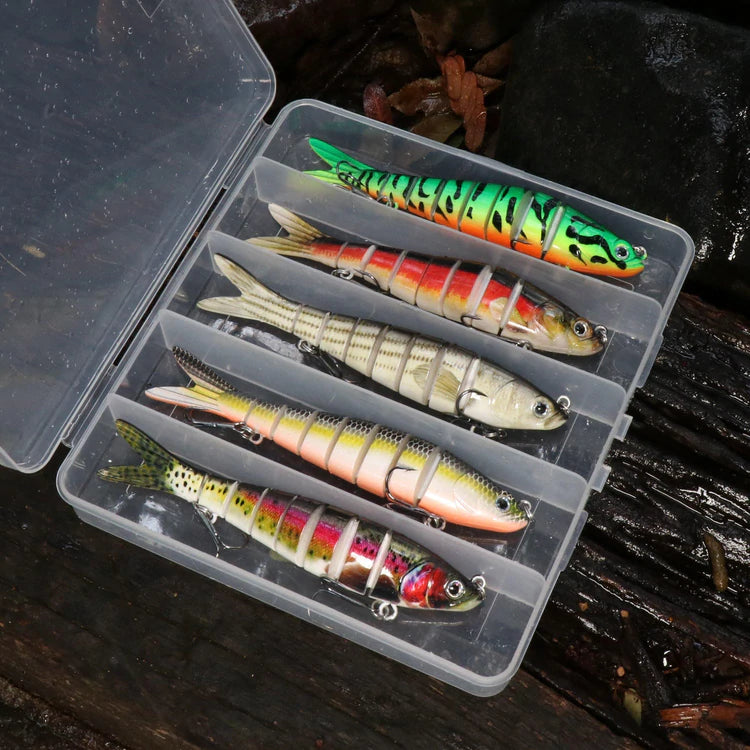
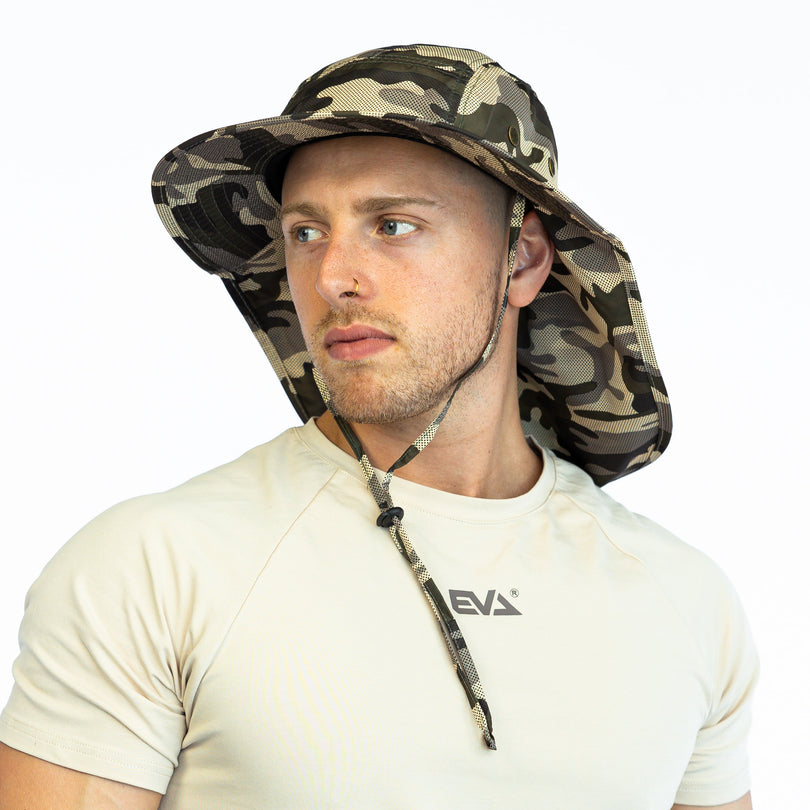
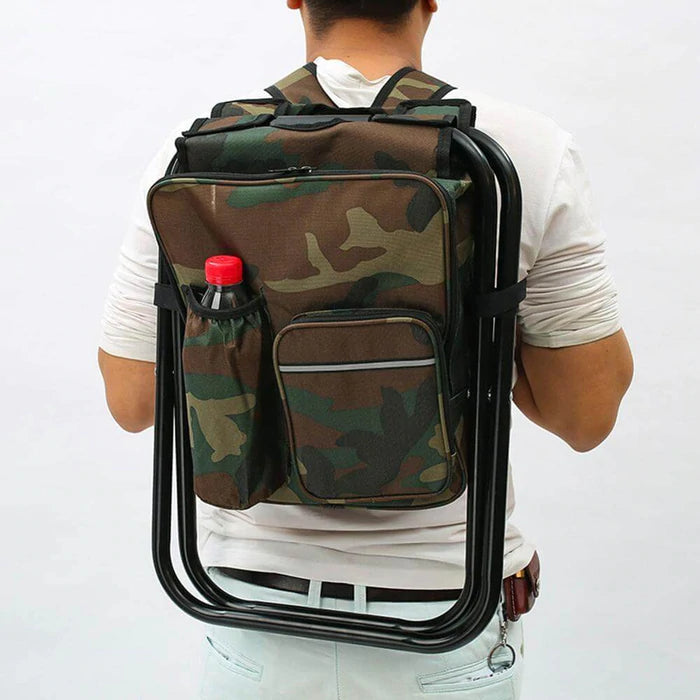
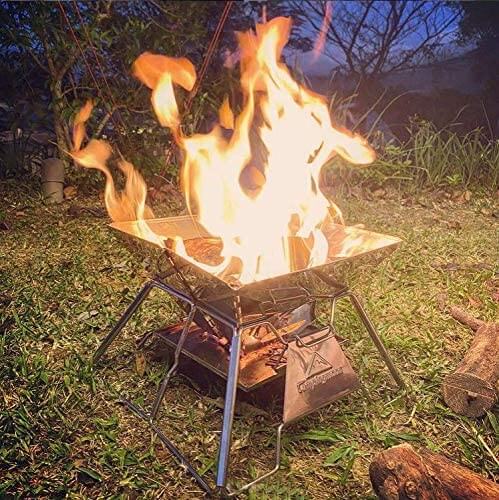
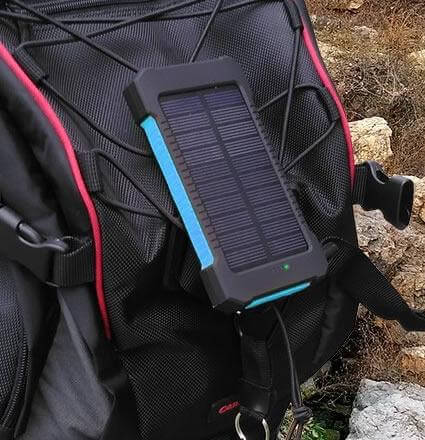
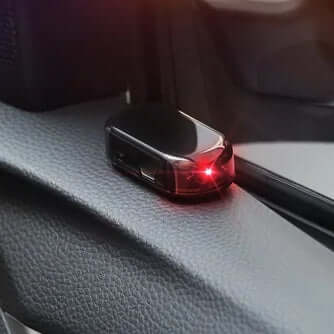
6 comments
Simply Heaven Rishikesh
Experience the thrill of Asia’s longest zip line at Flying Fox Rishikesh! Soar over the stunning Ganges River at speeds up to 160 km/h. Perfect for adventure seekers, this exciting ride offers unbeatable views and a rush of adrenaline. Book your adventure today!
website: https://simplyheavenrishikesh.com/flying-fox-in-rishikesh.php
Experience the thrill of Asia’s longest zip line at Flying Fox Rishikesh! Soar over the stunning Ganges River at speeds up to 160 km/h. Perfect for adventure seekers, this exciting ride offers unbeatable views and a rush of adrenaline. Book your adventure today!
website: https://simplyheavenrishikesh.com/flying-fox-in-rishikesh.php
Caroline Smith
I loved reading about your camping tips. Looking forward to more stories from your outdoor escapades! I love also bringing my camping tools from: https://campinggears.ph/benefits-of-using-car-shower-tent/
I loved reading about your camping tips. Looking forward to more stories from your outdoor escapades! I love also bringing my camping tools from: https://campinggears.ph/benefits-of-using-car-shower-tent/
Charles Krim
Your blog is great and I learned new activities for a camping trip. Camping awakens the inner explorer in everyone, allowing for personal development and self-discovery. I enjoyed reading about camping tips. Thank you. I currently reading blogs here: https://campinggears.ph/choosing-portable-power-station-guide/
Your blog is great and I learned new activities for a camping trip. Camping awakens the inner explorer in everyone, allowing for personal development and self-discovery. I enjoyed reading about camping tips. Thank you. I currently reading blogs here: https://campinggears.ph/choosing-portable-power-station-guide/
Riverside Camp In Rishikesh
Absolutely thrilled to have found Simply Heaven Rishikesh! The promise of waking up to the Ganges and Shivalik Mountains sounds like the perfect escape. Can’t wait for the awe-inspiring vistas and a rejuvenating retreat! 🌄🏞️ #SimplyHeavenRishikesh #NatureEscape
source: https://simplyheavenrishikesh.com/
Absolutely thrilled to have found Simply Heaven Rishikesh! The promise of waking up to the Ganges and Shivalik Mountains sounds like the perfect escape. Can’t wait for the awe-inspiring vistas and a rejuvenating retreat! 🌄🏞️ #SimplyHeavenRishikesh #NatureEscape
source: https://simplyheavenrishikesh.com/
Riverside Camp In Rishikesh
Absolutely thrilled to have found Simply Heaven Rishikesh! The promise of waking up to the Ganges and Shivalik Mountains sounds like the perfect escape. Can’t wait for the awe-inspiring vistas and a rejuvenating retreat! 🌄🏞️ #SimplyHeavenRishikesh #NatureEscape
Absolutely thrilled to have found Simply Heaven Rishikesh! The promise of waking up to the Ganges and Shivalik Mountains sounds like the perfect escape. Can’t wait for the awe-inspiring vistas and a rejuvenating retreat! 🌄🏞️ #SimplyHeavenRishikesh #NatureEscape
Wahab
Hi my name is Wahab. I am a professional blogger and camper for quite long time. Your guide is so useful for campers and you have mentioned great points which can help campers Thank you
Kindly visit: https://wandererguru.com/best-campgrounds-in-saskatchewan/
Hi my name is Wahab. I am a professional blogger and camper for quite long time. Your guide is so useful for campers and you have mentioned great points which can help campers Thank you
Kindly visit: https://wandererguru.com/best-campgrounds-in-saskatchewan/